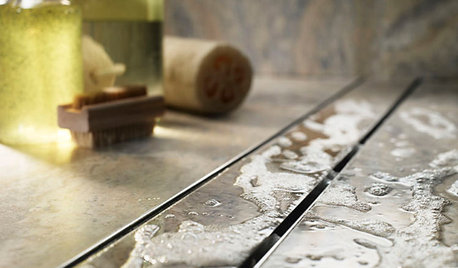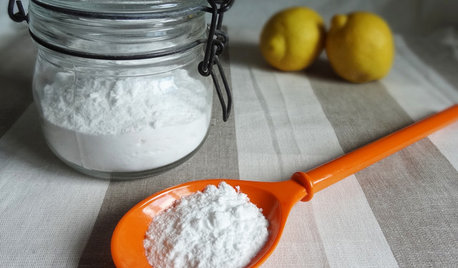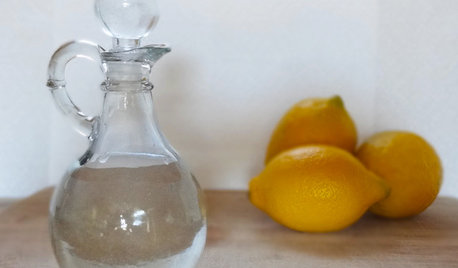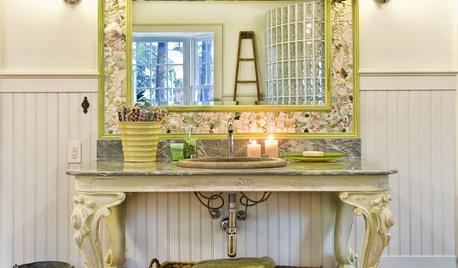natural deodorant
canningmom
19 years ago
Related Stories

HOUSEKEEPING12 Cleaning Projects That Go a Little Deeper — Naturally
Eucalyptus oil for germy door handles. Baking soda for oven grime. Here are nontoxic solutions for often-overlooked cleaning jobs
Full Story
HOUSEKEEPINGBaking Soda: The Amazing All-Natural Cleanser You Already Own
Battle grime, banish odors and freshen clothes with this common nontoxic cupboard staple
Full Story
HOUSEKEEPINGVinegar and Voilà: Clean Your House the Natural Way
Ditch the commercial cleaners for nontoxic, inexpensive and versatile white vinegar
Full Story
CLEANINGEco-Friendly Tips and Tricks for Cleaning Your Home
Are you wary of using chemicals to clean? These simple products and tricks will keep your home spotless naturally
Full Story
HOUSEKEEPINGThe Quick and Easy Way to Clean a Microwave
All you need is water and a couple of other natural ingredients to get your appliance sparkling and smelling fresh again
Full Story
HOUZZ TOURSMy Houzz: 500-Square-Foot Charmer in Santa Cruz
Dreamy whites, antique finds and nature-inspired decor fill an interior designer's cozy lagoon-side home
Full Story
MOST POPULAR33 Magic Household Cleaning Tips
Houzzers from around the world share their tips for transforming housework into child’s play
Full Story
BATHROOM DESIGN18 Sumptuous Vanities for Singular Bathrooms
Uncommonly beautiful or dazzlingly detailed, these dream vanities bring a rarefied air to bathrooms
Full Story
ENTERTAININGEasy Hospitality: 3 Basics for Successful Hosting
Make guests comfortable even if resources are tight by getting these entertaining essentials down pat
Full Story
GARDENING GUIDESGet on a Composting Kick (Hello, Free Fertilizer!)
Quit shelling out for pricey substitutes that aren’t even as good. Here’s how to give your soil the best while lightening your trash load
Full StoryMore Discussions






ellanadasdy
LivingInOz
Related Professionals
Hershey Landscape Architects & Landscape Designers · Quincy Landscape Architects & Landscape Designers · Belmont Landscape Contractors · Edinburg Landscape Contractors · Medford Landscape Contractors · Methuen Landscape Contractors · Ridgewood Landscape Contractors · Riverhead Landscape Contractors · Wallingford Landscape Contractors · Hawaiian Gardens Landscape Contractors · Atlanta Carpenters · Carol City Carpenters · Pickerington Carpenters · Miami Beach Roofing & Gutters · White Plains Roofing & GuttersDaisyduckworth
habitat_gardener
FlowerLady6
oakleif
rusty_blackhaw
rusty_blackhaw
silversword
rusty_blackhaw
silversword
maya357
rusty_blackhaw
silversword
Nicole7721
peterborda
johnorange
zzackey